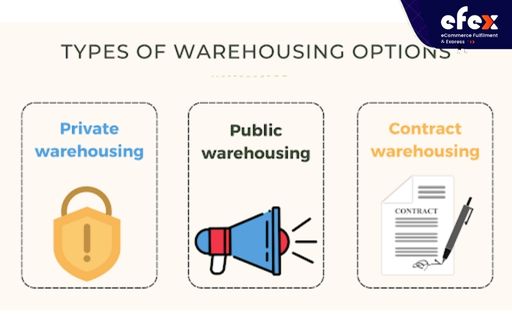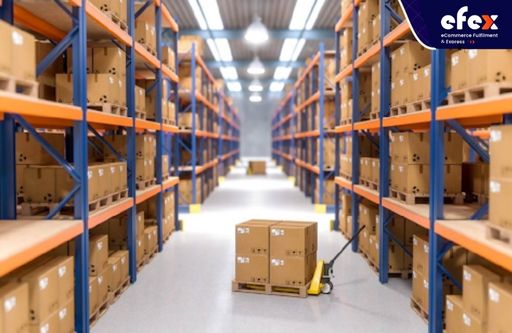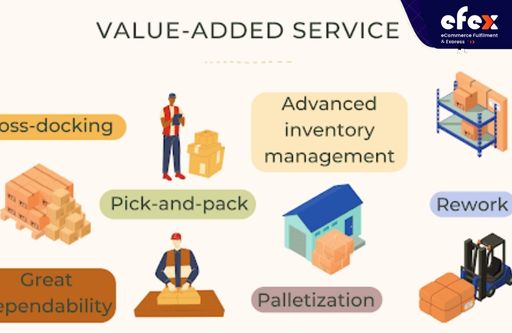
More Helpful Content
Contract warehousing has emerged as the go-to solution for enterprises in need of dedicated storage space as well as distribution and fulfillment services. It is a hybrid of private and public warehouses, with the key distinction being longer periods. While there are other warehouse solutions accessible, the majority of them are either too expensive or lack the essential value-added services.

However, before signing a contract, you must understand clearly what is contract warehouse and must examine all of its alternatives, and ensure that a contract warehouse best meets your values and aims.
Contract warehousing or dedicated warehousing is an agreement in which a partnering warehouse accepts, stores, and ships items on behalf of a customer. The contract specifies the conditions of service and the duration of the agreement.
The duration might range from months to years, and the price structure can be set, costs-plus, or combined together. Other services that might be included in contract warehousing agreements include handling, packing, delivering, and managing inventory.
👉 Read More: What Is Warehouse Control System (Wcs)?
👉 Read More: What Is Warehouse Zone? Types And Benefits

Contract warehousing firms assist businesses in storing things in a central area so that products may be delivered more effectively. A centralized warehousing facility lowers the cost of transferring products following order processing as well as the shipping duration.
Many firms prefer contract warehousing since it reduces overall expenses and capital expenditure. It is no surprise that contract warehousing has become a popular business option because it allows access to a large number of essential warehouse sites.
One key distinction between contract warehousing and other common alternatives such as shared warehouse space or personal warehousing is that a contract warehouse is focused on a single client. The entire facility, including the dedicated warehouse, is dedicated to one business’s goods. The tenant agrees to take up that fixed space and defers management to the contract warehouse. Contract warehouses typically require their customers to commit to an exact length of the contract, which is typically months or years.

The contract warehousing method has two further variants. The first is when the contract warehouse firm owns the physical building and leases it to the tenant firm, which operates it with its own workers and equipment.
In the alternate scenario, the customer owns or rents the warehouse building and contracts a contract warehouse to employees, and manages all operations. Contract warehouses can also subdivide a bigger facility for many contract customers. The contract in this structure will allocate a fixed amount of floor space and resources to every customer.
When your company needs additional storage space, you will have three alternatives to choose from. It includes:

A distributor or manufacturer who utilizes a personal warehouse owns or leases the warehouse facility and is solely responsible for inventory management and warehouse operations. This method is time consuming and expensive when in comparison to other warehousing options. Once a business constructs a personal warehouse, it typically takes 30 years to get a financial return.
The customer does not sign a contract for a specific amount of space or resources when using shared warehouse space or public warehousing. Instead, they will share the warehouse with other customers. They will pay a monthly bill depending on the number of pallets that come in and out of the warehouse, allowing them to take up more or less warehouse space predicated on their inventory requirements.
The warehouse works on a first-come, first-served basis, while the customer only needs to pay for the space they utilize. If your inventory varies frequently, a public warehouse may not always have the space you require. These warehouses are typically used for short-term storage requirements, like seasonal stock.
Contract warehousing or dedicated warehousing occurs when a business outsources warehouse activities to a larger place or a third-party logistics service. A contract warehouse is the best choice for businesses with a consistent inventory quantity because it dedicates a certain amount of space on a long-term basis. Contracts typically last years, making them ideal for medium-term and long-term storage demands.
Contract warehousing provides many clients with the ideal blend of absolute flexibility and control of having a personal warehouse and the low cost and low participation of using a shared warehouse. The following are some of the benefits of third-party contract warehousing agreements.

Imagine that a new warehouse or logistics facility in US costs approximately $125 per square foot. A new warehouse is often a multimillion-dollar investment because the average freshly built warehouse is just under 185,000 square feet.
While real-estate expenses are slightly cheaper in many countries, warehouse investments are prohibitively expensive for most enterprises. Establishing a warehousing facility in an existing structure necessitates expenditures on warehousing equipment such as forklifts.
Once you opt to contract your warehouse space, you will have immediate access to warehouse space without the expensive costs of building, upgrades, or equipment. Whenever you hire a warehouse, you may utilize it for a limited period to satisfy your immediate demands. When your contract expires, you can opt to contract for more space without making another big upfront expenditure.

Contract warehousing firms are specialists in their field. They may frequently devise techniques to improve the efficiency of your storage, fulfillment, and logistics, leading to cost savings. Conversely, renting or owning a warehouse generally arises several fees and charges. Utilities, building upkeep, and property taxes are all examples of unpredictability in your monthly payments.
When you pick a contract warehousing, all of your charges will be laid out in writing in your warehousing agreements. You will have predictable overhead and will be able to share expenditures such as electricity and maintenance with other contractual customers.
👉 Read More: All Cost To Rent A Warehouse

One significant advantage of contract warehousing versus a public warehouse is the availability of committed personnel. Whereas a public warehouse is primarily concerned with maintaining full storage capacity, a contract warehouse understands that it can depend on foreseeable storage demands and provide more resources to particular clients.
For example, some businesses want temperature-controlled warehouses, which necessitate skilled monitoring by specialized staff members.
When you hire someone to manage your products, they may also provide you with additional essential services like:

When picking contract warehouse space, you will have to access it for a set amount of time. A contract will protect your firm from unforeseen charges whether you intend to utilize the space for 1 year or 10 years. The contract will require the yearly or monthly fee, as well as any adjustments that may occur throughout the contract duration. There will also be text outlining the procedure for prolonging the contract duration.

Contract warehouses offer additional packaging and delivery services. These are valuable services that a company might utilize if it is expanding or facing sudden surges in demand. A contract warehouse allows a company to rely on logistics providers to keep items moving to and from storage on schedule.
Long-term partnerships with dependable partners are critical to a company’s survival. To do this, both entities must collaborate in a trusting environment.

A variety of considerations can assist establish whether a business is better suited for a contract warehouse or not. However, the decision will be made based on the cost. Contract storage is appealing to businesses who want the certainty of a fixed contracted charge over the changing rates associated with shared warehousing.


